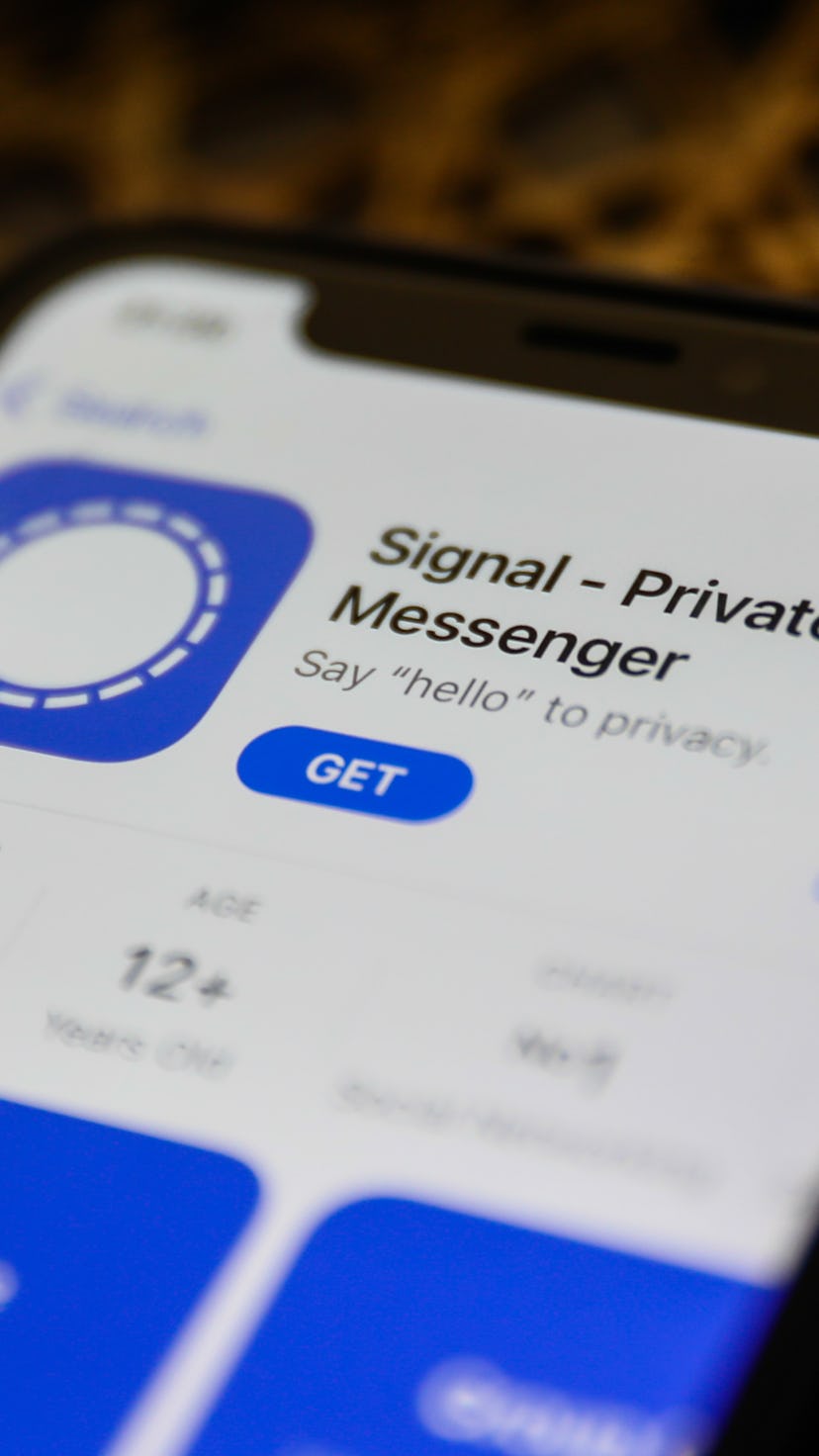South_agency/E+/Getty Images
After WhatsApp put out new privacy guidelines in January, people started to rethink their chat choices. 7.5 million people downloaded Signal the week of Jan. 10, and others flocked to Telegram or Discord. So what's the difference between Signal and other chat apps?
DAMIEN MEYER/AFP/Getty Images
WhatsApp, Telegram, and Signal have some similarities: they’re all free mobile apps for both Android and iPhone, support group chats, and provide some level of encryption for texting, voice calls, and video, per CNET. But there are some big differences.
gawrav/E+/Getty Images
Unlike WhatsApp and Facebook Messenger (owned by Facebook), or Telegram, Signal is owned by a non-profit that covers operating costs through donations (rather than through selling anonymized data).
Westend61/Westend61/Getty Images
WhatsApp and Signal both use end-to-end encryption, which means their parent companies can’t read messages you send and receive. WhatsApp stores messages in unencrypted forms in back-ups, though, while Signal doesn’t, which is an even stronger privacy move.
SOPA Images/LightRocket/Getty Images
Telegram, meanwhile, doesn’t automatically use end-to-end encryption. You have to turn it on manually. By default, it encrypts messages between you and its server, and it doesn’t encrypt group chats at all.
blackCAT/E+/Getty Images
Discord is another group messaging app built and used mostly by gamers; unlike WhatsApp, it can have dozens of people in a single group, or server. In terms of privacy, it collects users’ data regardless of whether they give permission or not.
Drazen_/E+/Getty Images
When it comes to your personal details — your name, location, contacts, and other identifying things — WhatsApp, Facebook Messenger, and Telegram collect big chunks of data, per CNET. Signal, meanwhile, only stores your phone number.
Westend61/Westend61/Getty Images
Signal also has an important tool for real privacy: the disappearing messages feature. If you turn it on, it deletes all messages on your phone and the recipient’s phone after a day or week.
Rowan Jordan/E+/Getty Images
And unlike other messaging apps, Signal also allows Android users to make your keyboard incognito, so no sensitive data can leak via somebody monitoring what you type.
PeopleImages/E+/Getty Images
Signal’s also not as widely used right now, and its privacy arsenal is only useful if other people are on Signal too. WhatsApp, meanwhile, is one of the most popular apps worldwide, which makes it more appealing to many.
